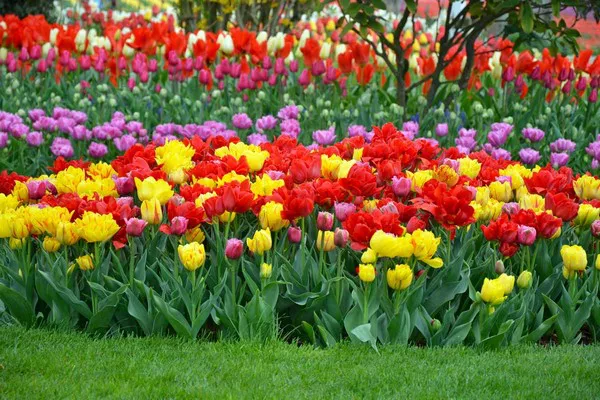At the prestigious Chelsea Flower Show hosted by the Royal Horticultural Society (RHS), a novel initiative has taken shape as children take the reins in designing a garden, albeit with unique conditions for adult access.
The innovative “No Adults Allowed” garden, a brainchild of youngsters, initially intended to bar grown-ups from entering. However, negotiations have led to a compromise where adults are permitted entry under certain terms.
To gain access to the garden, adults must commit to one of three actions: planting a tree, contributing to a school gardening campaign, or discovering a flower whose name begins with the initial letter of their own name.
Clare Matterson, the Director-General of the RHS, revealed that securing adult access involved rigorous negotiations. The RHS No Adults Allowed Garden marks the first time children have spearheaded a design at the Chelsea Flower Show. Collaborating with garden designer Harry Holding, nine- and ten-year-old pupils from Sulivan Primary School in Fulham, London, have crafted this unique garden.
This non-competitive garden boasts a whimsical setting, showcasing lush woodlands, abundant meadows, and a wetland area adorned with oversized bog plants. Its focal point, a natural den nestled in a pool of water, promises an enchanting experience.
Adults seeking entry will need to declare their pledge, earning a sticker crafted by the children, serving as their ticket to the garden.
Preparations for the Chelsea Flower Show have involved a series of interactive sessions between the RHS, Mr. Holding, and the children. These sessions included activities such as herb planting, balcony gardening tutorials, design workshops, and arts and crafts sessions.
In a collective statement, the Sulivan Primary School students expressed their initial desire to keep the garden exclusive to children. However, they also wished to showcase their hard work to the world, emphasizing the importance of environmental stewardship and the joy of gardening.
Ms. Matterson acknowledged the challenging negotiations, highlighting the children’s input in devising the access conditions. She expressed confidence in visitors’ commitment to their pledges, ensuring a balance of fun and environmental responsibility.
The children carefully selected the three pledge options: planting a tree to support environmental sustainability, contributing to the RHS campaign for school gardening to foster nature appreciation among youth, and finding a flower starting with the initial letter of one’s name, promoting learning through enjoyment.


